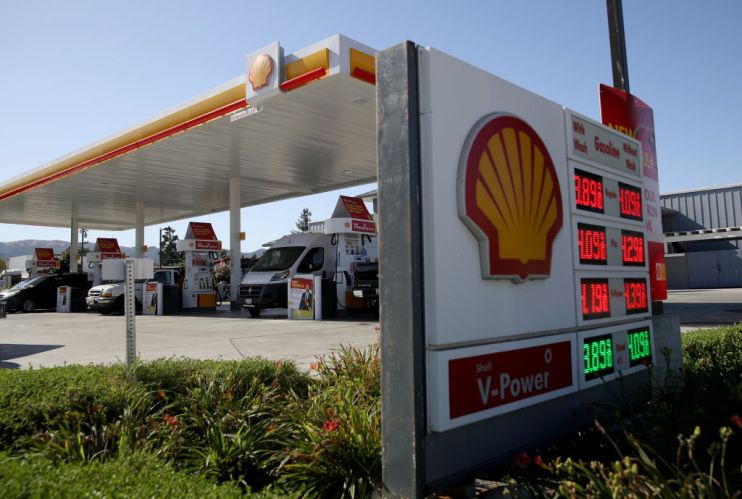Shell’s final quarter profit halves amid oil price slump

Shell saw its final quarter income halve as the continued slump in global oil prices knocked the company’s full year profits.
The figures
Shell’s full year income attributable to shareholders for 2019 was $16.5bn (£12.7bn), a 23 per cent fall from last years $21.4bn.
In the final quarter, shareholder income fell 48 per cent from same period last year, from $5.6bn to $2.9bn.
A survey of analysts had forecast profit of $3.2bn.
Cash flow across the business’ operations fell 21 per cent to $42.1bn for the whole year, and saw a 53 per cent fall in the final quarter.
Earnings per share continued the trend, falling 30 per cent from $2.82 to $1.97.
In one more positive sign for investors, Shell launched the next tranche of its $25bn share buyback programme, having already bought back nearly $15bn so far.
Shell’s shares fell three per cent in this morning’s trading.
Why it’s interesting
Oil prices, which have been in a prolonged slump due to a surplus of supply, were widely expected to hit Shell’s results, whilst last month the firm announced it would be hit by a $2.3bn impairment for the year.
Around $1.7bn of this was related to the firm’s onshore natural gas fields in North America. Rivals such as BP and Chevron have been hit with similar charges recently.
Stuart Lamont, investment manager at Brewin Dolphin, said: “Investors in Royal Dutch Shell were braced for bad news today and the company’s results are largely worse than expected against a highly challenging macro-economic backdrop.
Get the news as it happens by following City A.M. on Twitter.
“The good news, however, is the continuation of the share buyback programme – a cautionary note in the last management statement had shareholders worried it would be slowed.”
The average price for a barrel of oil was $64 in 2019, compared to $71 the year before. So far in 2020 prices have spiked above $70 but now look to be in an extended downturn.
Neil Wilson, chief markets analyst at markets.com, said: “The world is awash with crude and natural gas and prices will likely be a headwind for some time. The demand side has yet to really recover.
“The coronavirus is not helping and could materially reduce average prices this year. Assuming Brent picks up to $71 looks like a case of hope over expectation.”
In light of prices, more focus has been thrust on Shell’s renewable power business, in which the blue-chip has invested about $2.3bn since 2017.
The firm has commitments of a further $1bn-$2bn to the business in the coming year.
Chief executive Ben van Beurden said that the company was “wholeheartedly embracing” the energy transition with investments in wind, solar, and EV chargepoints around the world.
In 2019 Shell’s UK household energy business acquired Hudson Energy, meaning it now supplies 900,000 customers in the UK.
Richard Hunter, head of markets at Interactive Investor, said that the results showed that “although potential for prospects remains evident, the current constraints are equally clear.
“Over the last year, Shell has also underperformed, with a 5.5 per cent decline in the share price comparing to a gain of nearly 8 per cent for the wider FTSE 100.”
What Shell said
Van Beurden added: “The strength of Shell’s strategy and portfolio has enabled delivery of competitive cash flow performance in 2019 despite challenging macroeconomic conditions in refining and chemicals, as well as lower oil and gas prices.
“We remain committed to prudent capital discipline supported by world-class project delivery and are looking to further strengthen our balance sheet while we continue with share buybacks.
“Our intention to complete the $25 billion share buyback programme is unchanged, but the pace remains subject to macro conditions and further debt reduction.”